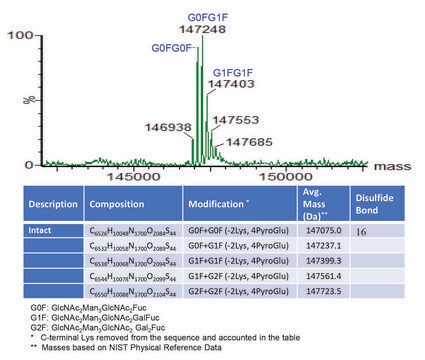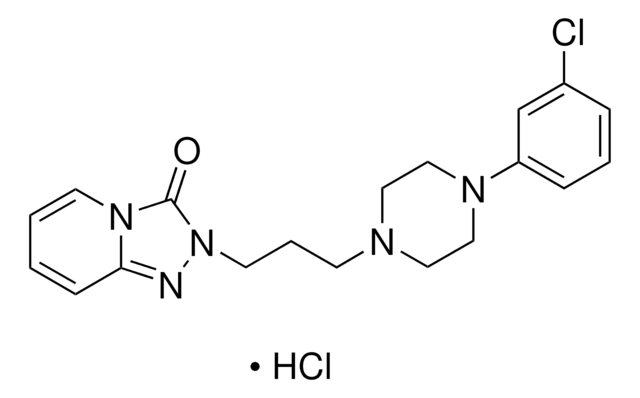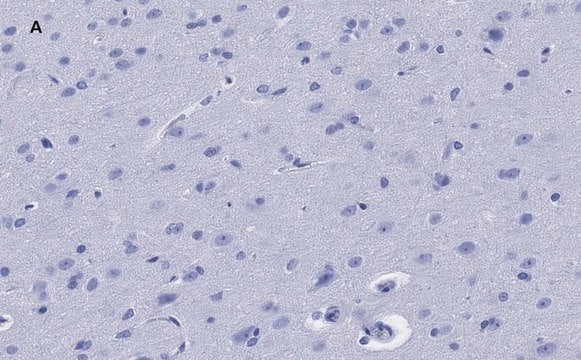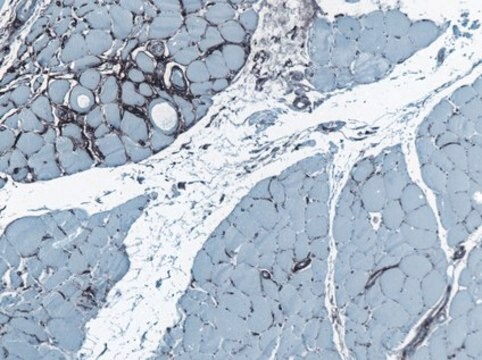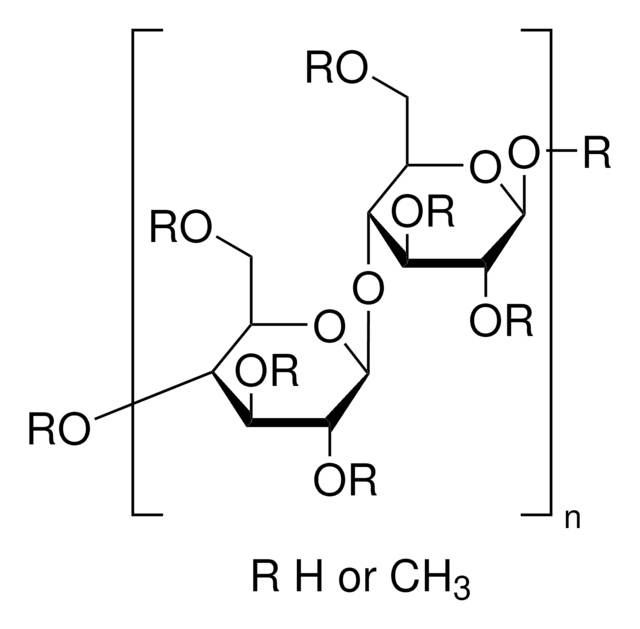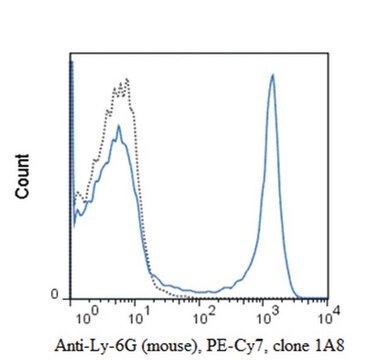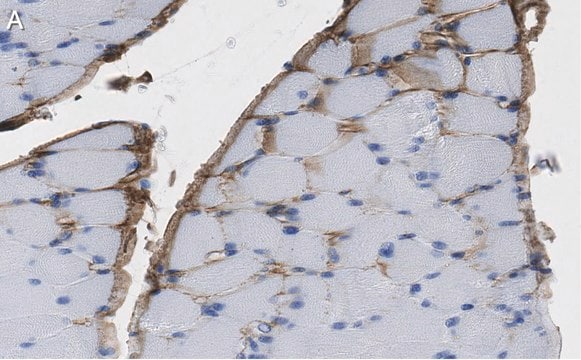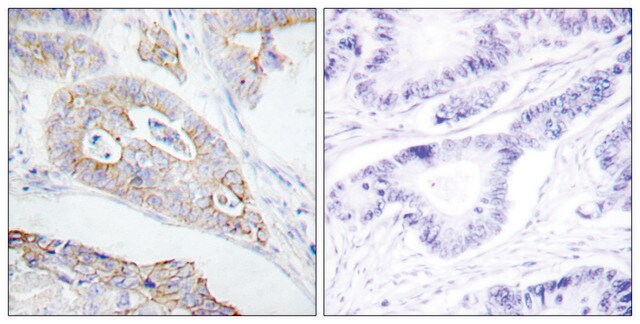MABS1201
Anti-OSBP Antibody, clone 1A6.2
clone 1A6.2, from mouse
Synonym(s):
Oxysterol-binding protein 1
About This Item
Recommended Products
biological source
mouse
Quality Level
antibody form
purified immunoglobulin
antibody product type
primary antibodies
clone
1A6.2, monoclonal
species reactivity
human
technique(s)
immunohistochemistry: suitable (paraffin)
western blot: suitable
isotype
IgG2bκ
NCBI accession no.
UniProt accession no.
shipped in
wet ice
target post-translational modification
unmodified
Gene Information
human ... OSBP(5007)
General description
Specificity
Immunogen
Application
Signaling
Vesicular Trafficking
Quality
Western Blotting Analysis: 0.5 µg/mL of this antibody detected OSBP in 10 µg of Jurkat cell lysate.
Target description
Physical form
Storage and Stability
Other Notes
Disclaimer
Not finding the right product?
Try our Product Selector Tool.
Storage Class Code
12 - Non Combustible Liquids
WGK
WGK 1
Regulatory Listings
Regulatory Listings are mainly provided for chemical products. Only limited information can be provided here for non-chemical products. No entry means none of the components are listed. It is the user’s obligation to ensure the safe and legal use of the product.
JAN Code
MABS1201:
Certificates of Analysis (COA)
Search for Certificates of Analysis (COA) by entering the products Lot/Batch Number. Lot and Batch Numbers can be found on a product’s label following the words ‘Lot’ or ‘Batch’.
Already Own This Product?
Find documentation for the products that you have recently purchased in the Document Library.
Our team of scientists has experience in all areas of research including Life Science, Material Science, Chemical Synthesis, Chromatography, Analytical and many others.
Contact Technical Service
